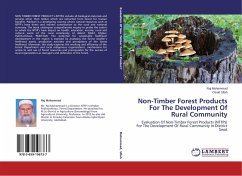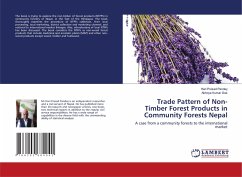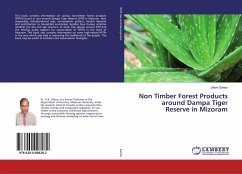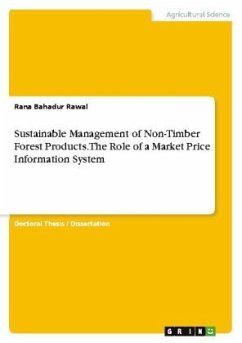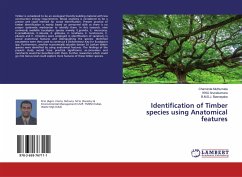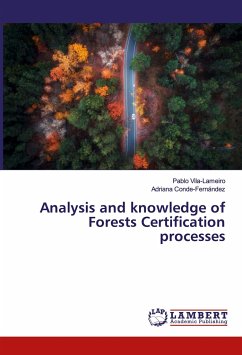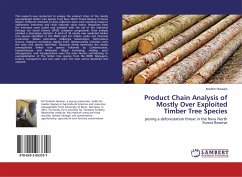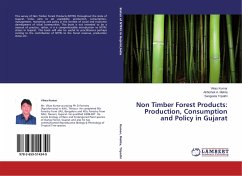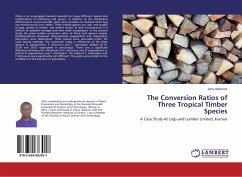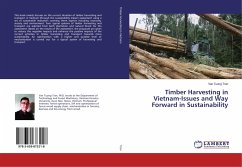
Role of Non-timber Forest for Sustainable Livelihood
Versandkostenfrei!
Versandfertig in 6-10 Tagen
27,99 €
inkl. MwSt.

PAYBACK Punkte
14 °P sammeln!
Millions of people throughout the world make extensive use of goods and service of forest resources. Forest goods are either timber or non-timber. Non-timber forest products (NTFPs) are harvested for both subsistence and commercial use and play a key role in the livelihoods of millions of rural people. It has received increased policy and research attention due to its perceived potential to meet sustainable rural development and tropical forest conservation. Studies in different parts of the country have shown that many rural households depend on NTFPs for subsistence and cash income. Although...
Millions of people throughout the world make extensive use of goods and service of forest resources. Forest goods are either timber or non-timber. Non-timber forest products (NTFPs) are harvested for both subsistence and commercial use and play a key role in the livelihoods of millions of rural people. It has received increased policy and research attention due to its perceived potential to meet sustainable rural development and tropical forest conservation. Studies in different parts of the country have shown that many rural households depend on NTFPs for subsistence and cash income. Although wealth of literature are building on NTFPs of Nepal, still studies are far less than sufficient to cover the wide ecological and forest types found in the country. One of the ecological regions relatively less covered is the Karnali region characterized by high diversity of plant and animal species, agro ecology and forest formations. This book is about livelihood of poorest ones in the Mugu District of Karnali Zone, with the main objective of assessing and analyzing the contribution of NTFPs for sustainable livelihood.



